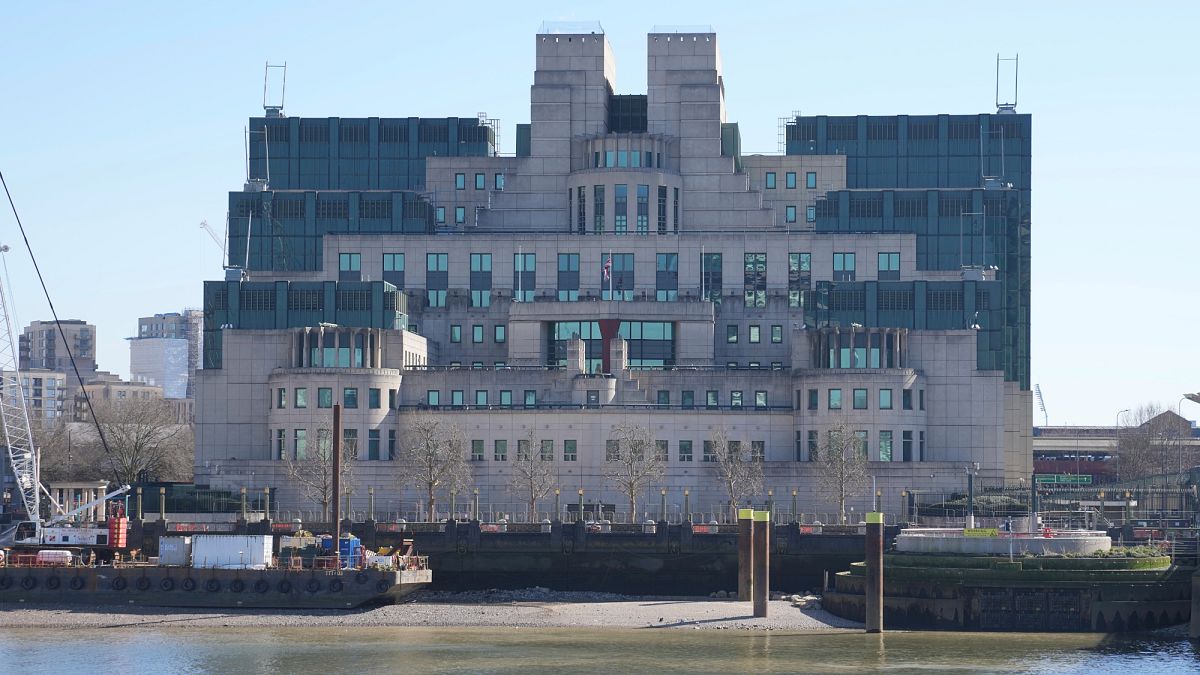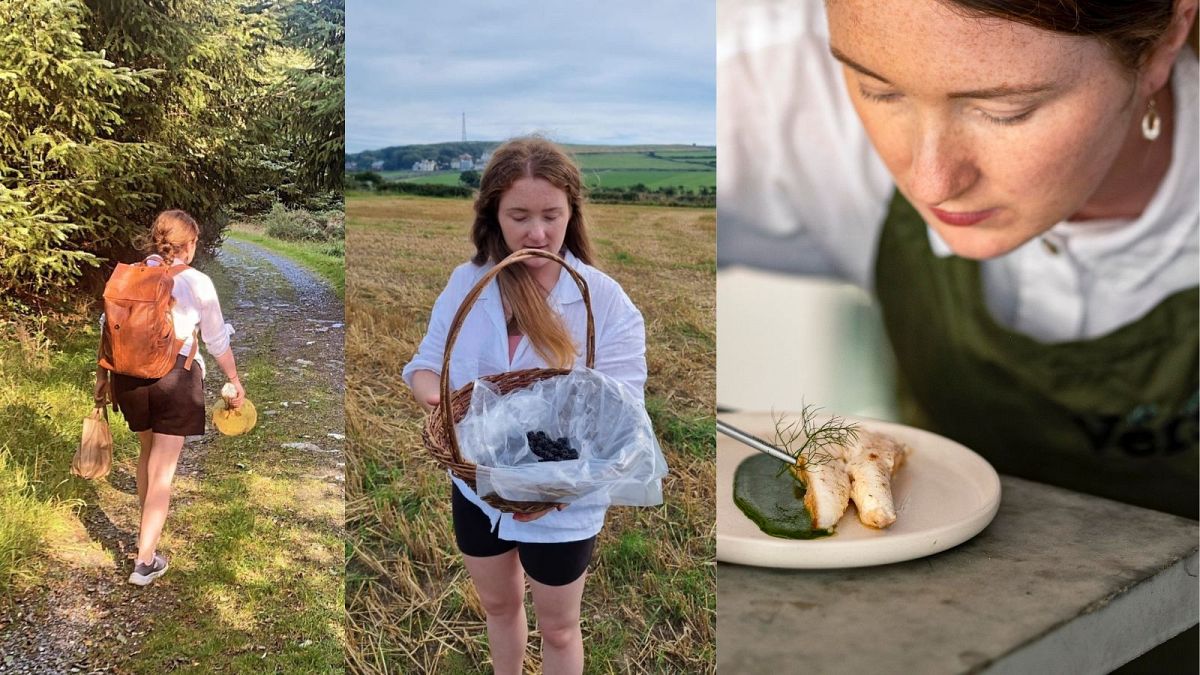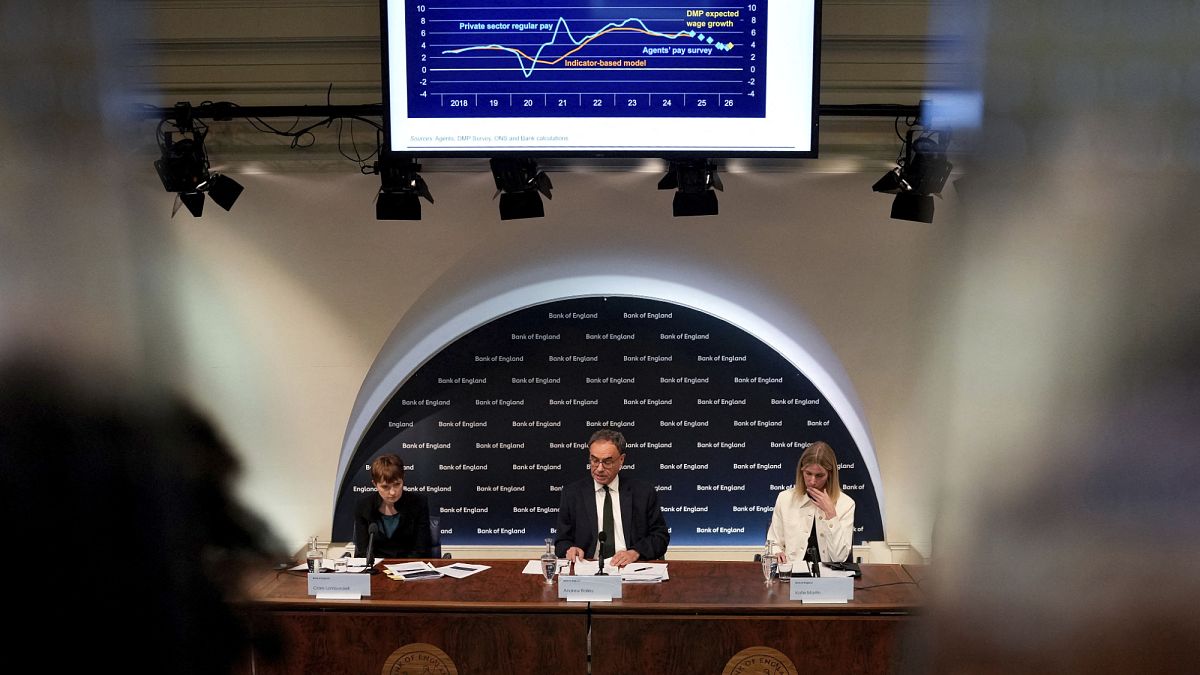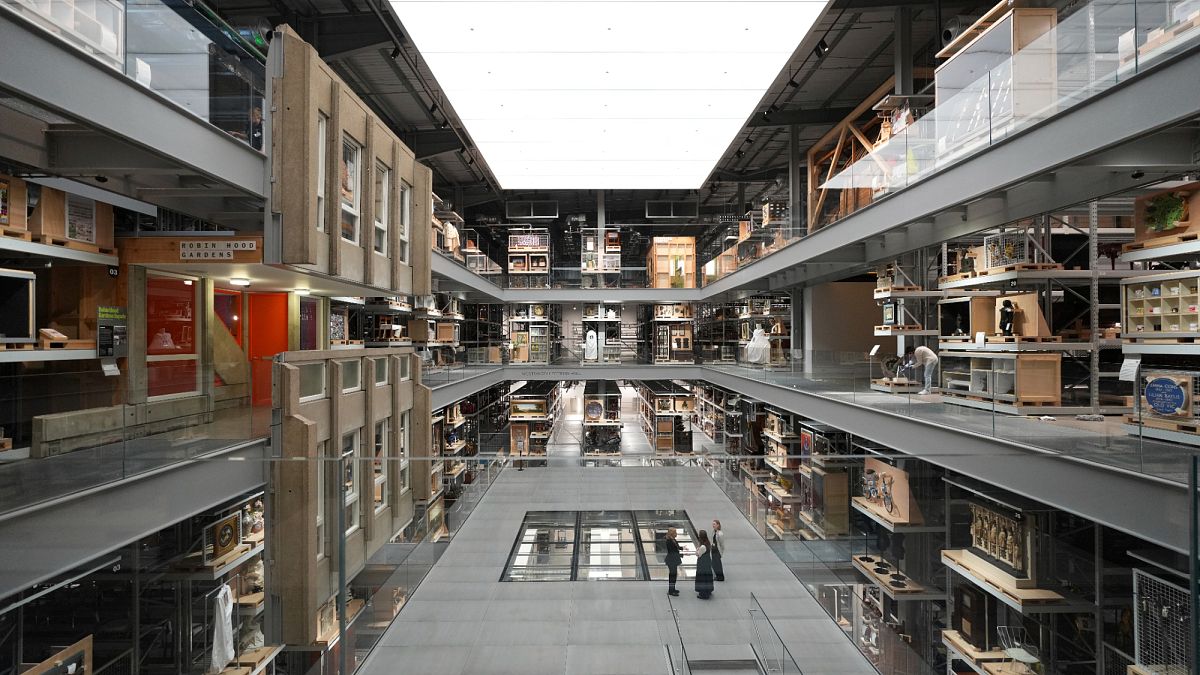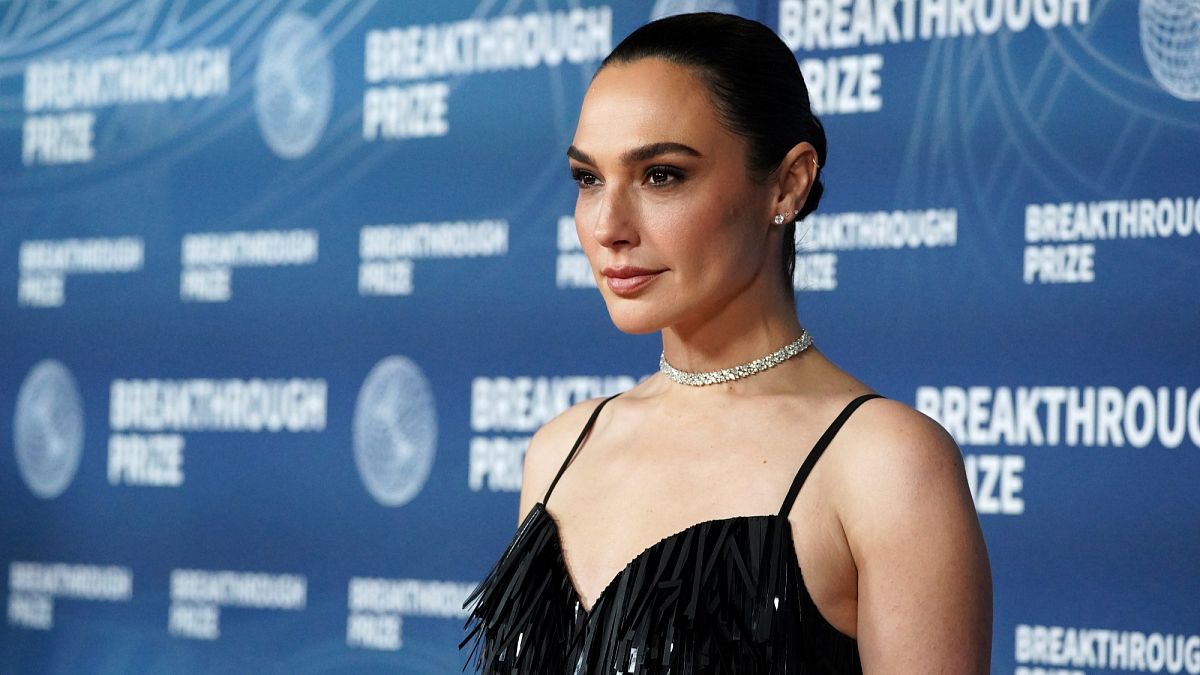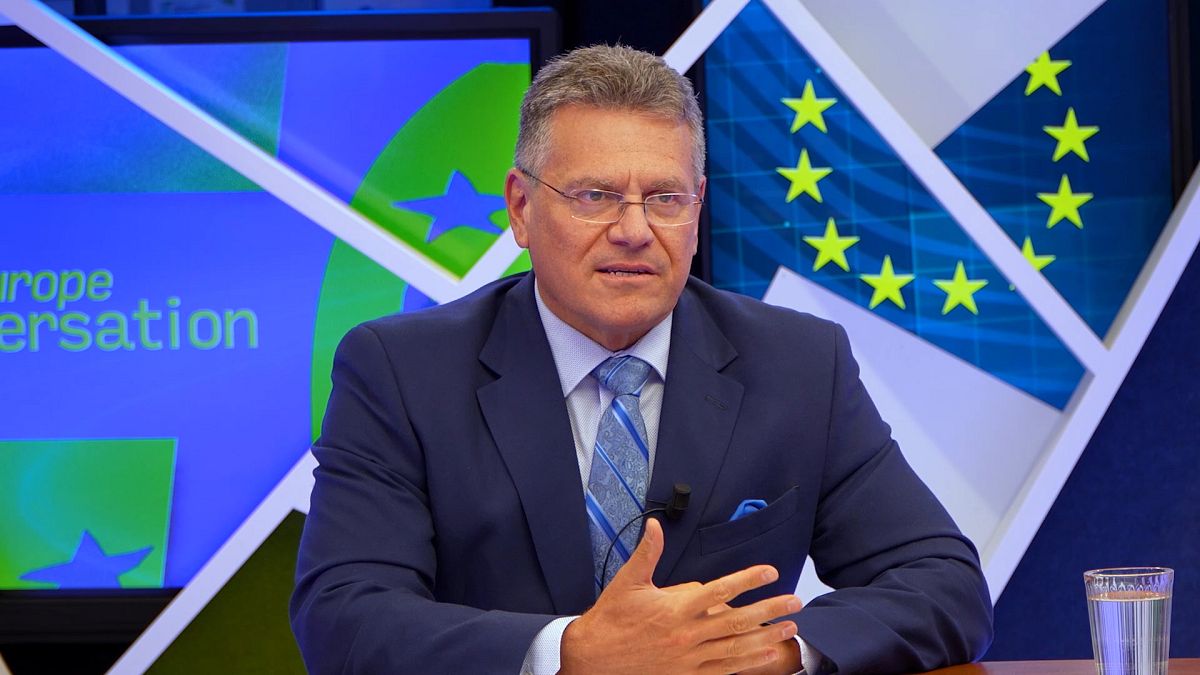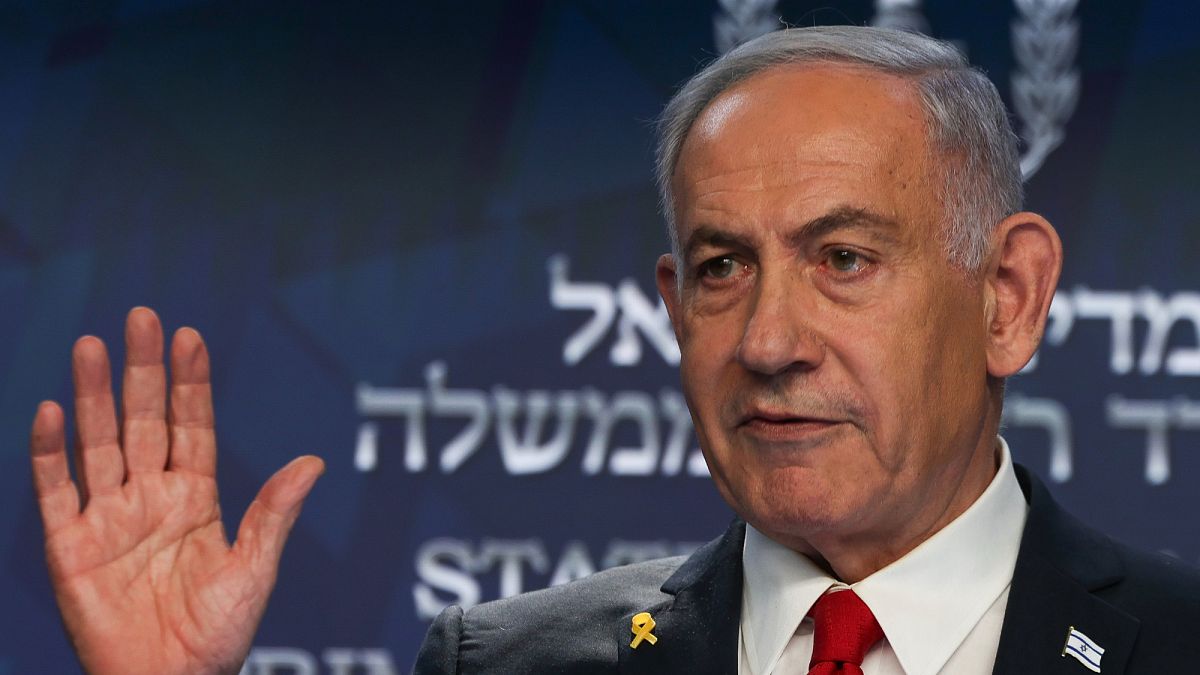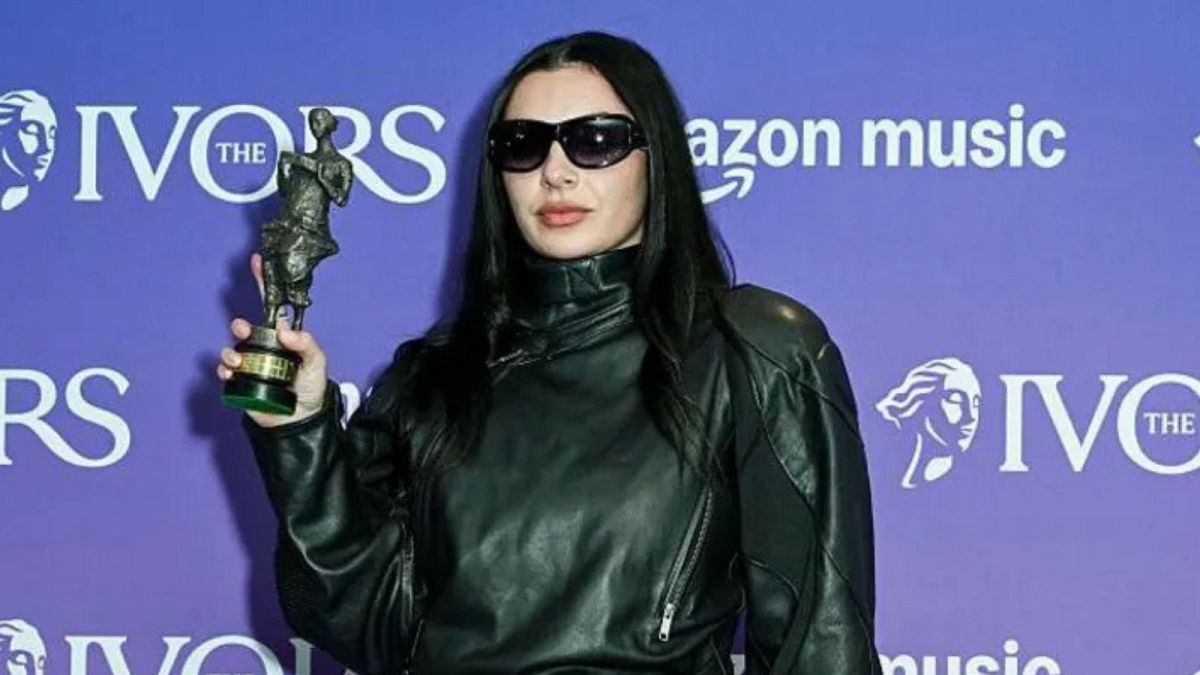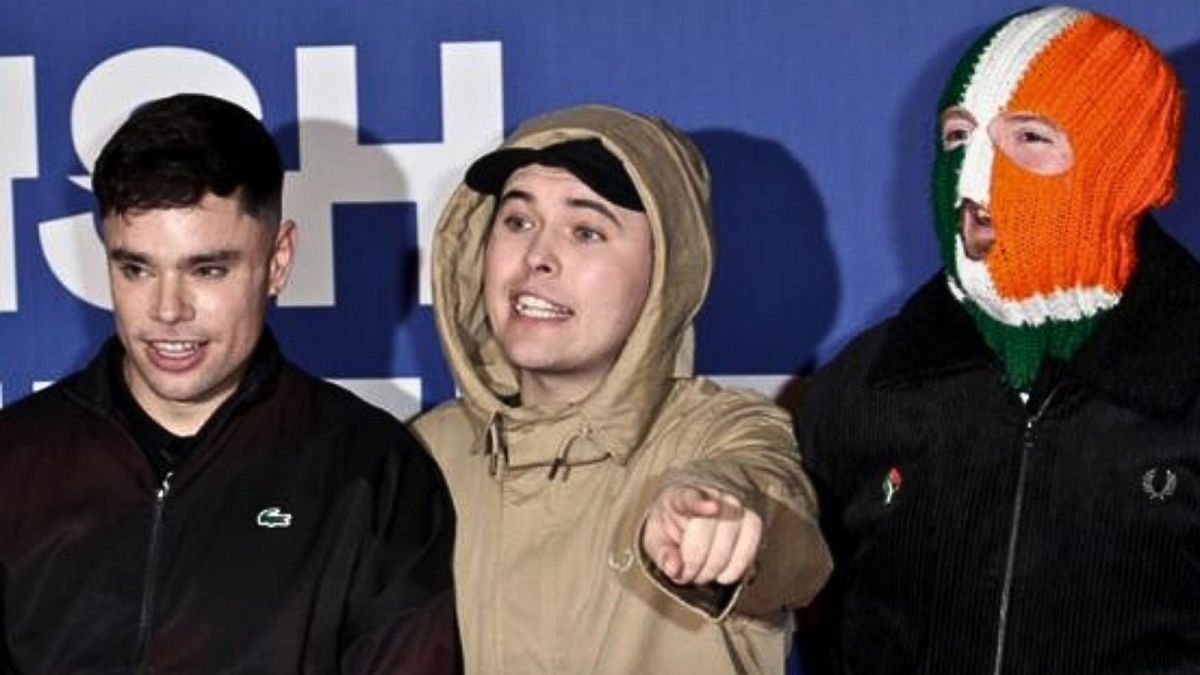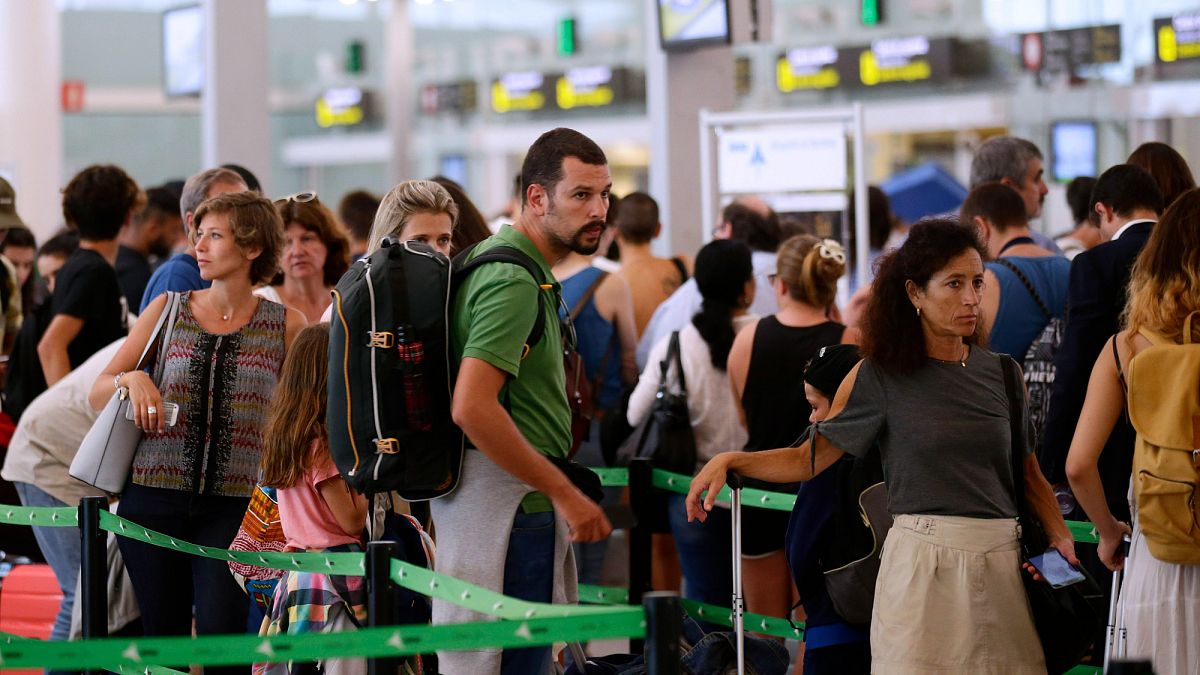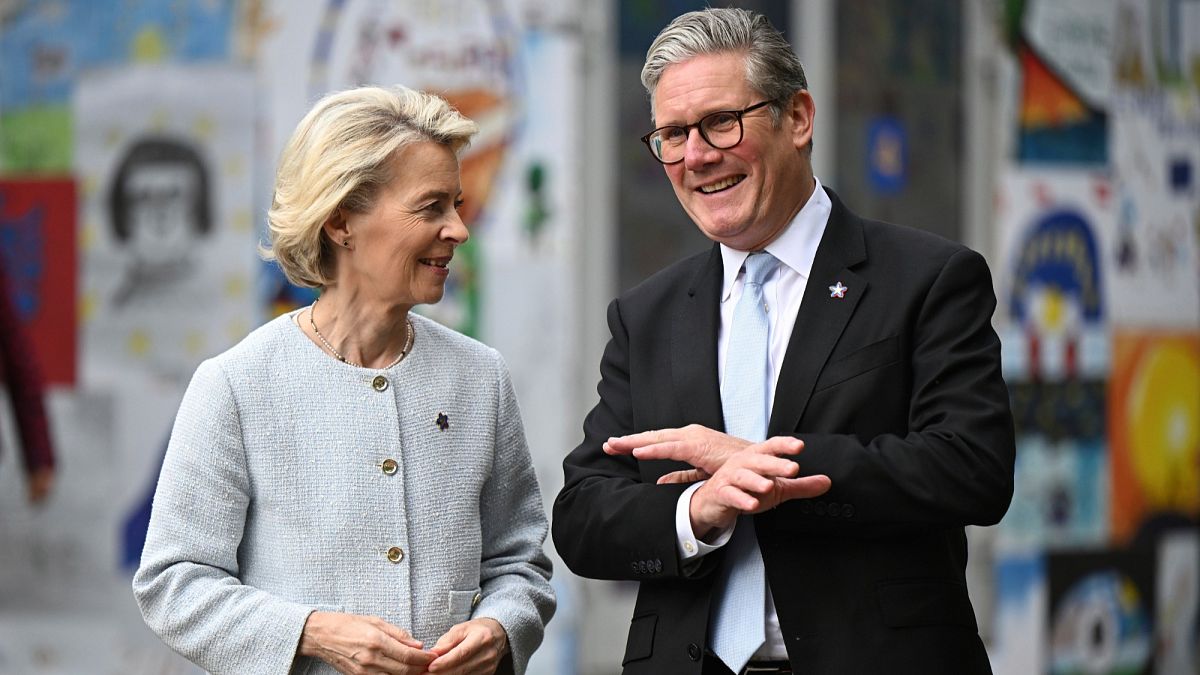Jemima Khan and the cast on ‘What’s Love Got to Do with It?’
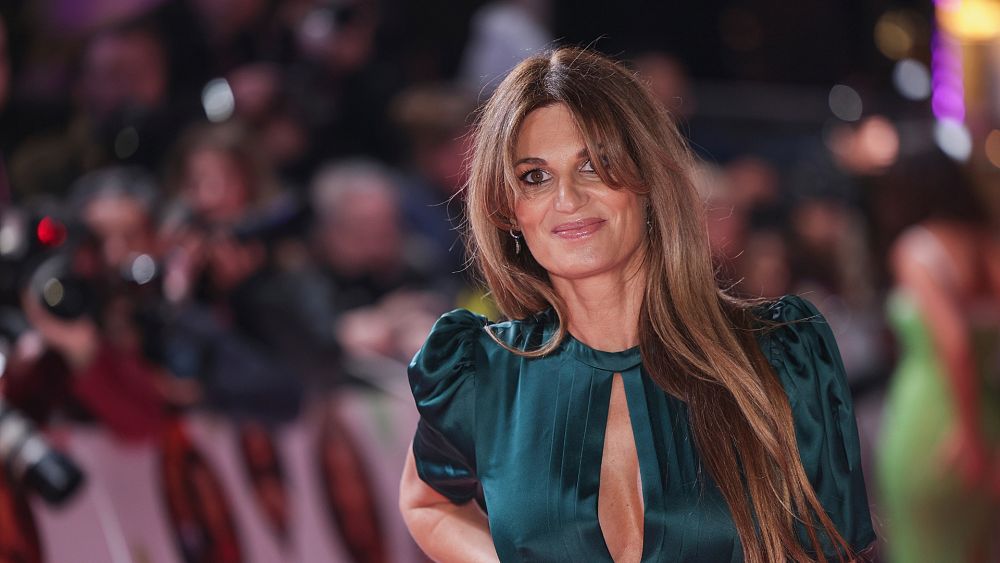
It’s not often you meet a woman like Jemima Khan.
Née Goldsmith, the English former journalist and associate editor of The New Statesman could have one day been Pakistan’s First Lady. She instead pivoted to a successful film career as a screenwriter, film-documentary producer and founder of television production company Instinct Productions.
Raised among the crème de la crème of London high society by billionaire father and former MEP Sir James Goldsmith, Khan’s life changed when she met cricket legend and aspiring politician Imran Khan in London in the mid 90s. Before long they married and she converted to Islam.
Together, the couple moved from London to live with Imran’s conservative family in Lahore.
“I went to Pakistan aged 20 with a lot of preconceptions that a lot of people in the UK have,” Khan tells Euronews Culture.
“I married into a very conservative family. In my ex-husband’s family ours was the only non-arranged marriage.”
“During that time, I developed a deep affection for Pakistan: a vibrant and fascinating, yet often negatively depicted country,” she says.
The Lahore chapter of her life has inspired her to produce and write a new film: What’s Love Got to Do with It?
Her marriage to Khan lasted a decade and in 2004, a 30-year-old Khan returned to London, having “grown up in Pakistan.”
“I saw arranged marriages up close. I saw long term ones and new ones being arranged and was kind of involved in that process. And I came away with a really different point of view that was really alien to the perspective of my friends here,” she reflects.
“At that point a lot of my London friends were thinking of having kids and wanted to get into settled relationships. It started as a joke where we would say: ‘Who would your parents have chosen? Would you have an arranged marriage and would it work?’ That was the seed of the idea for the story.”
“There is a sense of arranged marriage being a very outdated, mediaeval idea and it isn’t. It’s not so long ago that even our Royal family were basically having arranged marriages,” Khan muses.
What’s Love Got to Do with It? is a love letter to Pakistan, she explains.
A new kind of Pakistani film
The film is a quintessential Working Title Production and follows the winning romcom formula that the studio applied to previous films Four Weddings and a Funeral and Love Actually.
Starring British talents Emma Thompson, Lily James and Shazad Latif, the film sets about to dispel negative stereotypes about Pakistani culture.
It follows how documentary-maker Zoe (James) struggles to navigate her love life after an endless stream of Mr Wrongs, much to her eccentric mother Cath’s dismay (Thompson). Meanwhile Zoe’s childhood friend and neighbour Kaz (Latif), follows his parents’ example and opts for an arranged marriage to a young bride from Pakistan.
The viewer embarks on a journey towards understanding the cultural phenomenon of “arranged” or “assisted marriages” through the character of Zoe. As she films Kaz’s journey from London to Lahore to marry a stranger chosen by his parents, Zoe begins to wonder if she might have something to learn from a profoundly different approach to finding love.
Lily James explains her character to Euronews Culture: “She’s a relatable single 30-something London girl struggling to figure out her place in the world and what she wants”.
Zoe undergoes “a huge growth in her understanding of assisted / arranged marriages which millions of couples across the world do and are successful in so there was a lot to learn.”
Reflecting on the film’s themes, Shazad Latif tells us: “The whole point of this film is that the Pakistani family next door are not to be feared. Emma Thompson’s character portrays a curious neighbour who is interested in their culture. There are many people for whom that does happen and we need to show that on screen – and it has a lot of commercial appeal.”
“If you see the portrayal of a Pakistani family on screen you take it in and your brain creates a new pathway,” he adds.
Breaking down stereotypes
Latif hopes that the film can help change the stereotypes that Pakistani actors face, often cast in films that focus on honour killings and suicide bombers.
“It’s an ongoing process. I think it needs to happen from the top down. You need the producers, the writers and the big executives wanting to make such projects. For example Working Title saying: ‘The South Asian market is really interesting – maybe we do need to get a piece of that?’,” he says.
“It was very hard to break into this industry. The first few years I played the tech guy, then I played the terrorist only recently. It is still happening. I feel very conflicted about that. Although this specific project was a true story and I respected the director,” Latif notes. “I’ve known Jemima Khan my whole life as Pakistani icon. It all felt like it had fallen into place and it came along at the right time.”
James concurs. “I really do feel so proud to be a part,” she says, noting the cultural exchanges she’s appreciated as part of the production process. “Playing Zoe I got to see Mehendi (wedding henna ceremonies) and Eid and the food.”
In one scene, the film pauses on a Sufi musician. “That was so moving and powerful – the way he sang up to God – my heart was pounding,” James says. “Making this film was a real celebration of Pakistani culture and I felt like I was really getting to enjoy that first-hand and I feel when people watch the film they will get to experience that.”
In addition to the three lead actors, the production boasts of a who’s who of British Asian talent. Oscar-winner Shekhar Kapur directs with a score by Nitin Sawhney and Grammy-winning record producer, DJ, songwriter and musician, Naughty Boy featured on the soundtrack.
What’s Love Got to Do with It? is already out in UK and Ireland and continues its European theatrical rollout during the month of March.
Source: Euro News


